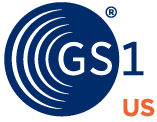Wegmans focused its pilot on sushi production—a complex process involving multiple ingredients and transformation events. With some stores lacking full-service kitchens, Wegmans uses nearby locations to prepare and ship ready-to-eat items, effectively becoming a reprocessor/repackager.
As the U.S. Food and Drug Administration (U.S. FDA) aims to address preventable foodborne illness and improve food traceability through the Food Safety Modernization Act Traceability Rule (FSMA Rule 204), two industry giants—Wegmans Food Markets and Sysco Corporation—stepped up to pilot what requirements look like in action. Their findings offer a wake-up call for grocery retailers and foodservice operators alike.
Wegmans: Traceability and the Ghost Kitchen Challenge
Key Takeaways
- More than one batch/lot number had to be created as they discovered additional transformation events than originally expected.
- Capturing Key Data Elements (KDEs) in a fast-paced kitchen environment proved time-consuming.
- Food-safe equipment and process constraints added complexity to data collection.
Sysco: Data Gaps and Barcode Realities
Sysco, with over 150 distribution centers, tackled traceability from a logistics perspective—focusing on inbound receiving and outbound shipping. Collaborating with suppliers of varying technical maturity, Sysco uncovered several challenges.
Challenge Takeaways
- Not all suppliers could transmit data electronically, requiring manual workarounds.
- GS1-128 barcodes didn’t always include traceability lot code source information.
- Damaged or poorly formatted barcodes slowed down scanning and data capture.
What This Means for You
Whether you're a regional grocer or a national distributor, FSMA Rule 204 is coming—and it’s not just a compliance issue. It’s a transformation of how your business handles data, processes, and partnerships.

5 Lessons From the Front Lines
1. Review
Existing processes cannot be taken for granted. Reassess everything to ensure a “fit for FSMA Rule 204” purpose is met.
2. Test
On paper or in transactions, a cohesive traceability system must move beyond modeling and into testing to ensure completeness of all interoperable components and steps.
3. Standardize
FSMA Rule 204 is complex. But it is also a basic requirement for everyone in the food ecosystem. Approaching all stakeholders with a unified industry response will support meeting the requirements with consistency. This regulation is not the path to differentiation or top-off procedures.
4. Sponsor
As organizations review FSMA Rule 204, their instinct is to have Food Safety or Food Quality departments take the lead on readiness and implementation. Their experience points to the need for a senior-level cross-functional approach that affords agency within the company as well as externally so that supply chain stakeholders align on the process changes required.
5. Start
No organization is immune to surprises and required changes. The sooner you and your team start, the easier your journey will be.






